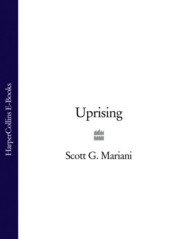По всем вопросам обращайтесь на: info@litportal.ru
(©) 2003-2024.
✖
A Small Death in Lisbon
Автор
Год написания книги
2019
Настройки чтения
Размер шрифта
Высота строк
Поля
‘A little after that, in the mess that followed our glorious revolution there were lots of ideas, ideals, visions. They petered out.’
‘And ten years later we joined Europe. And now we don’t have to struggle on our own any more. We don’t have to sweat at night thinking where the next escudo is coming from. Brussels tells us what to do. We’re on the payroll. If we . . .’
‘And that’s a bad thing?’
‘What’s changed? The rich get richer. The ones in the know go higher. Of course, it’s trickled down. But that’s the point. It’s a trickle. We think we’re better off because we can drive around in an Opel Corsa which costs us our entire living wage to run while our parents house us, feed us and clothe us. Is that progress? No. It’s called “credit”. And who benefits from credit?’
‘I haven’t heard anger like that since . . . since FC Porto came down here and put three past Benfica.’
‘I’m not angry,’ he said, cooling his hand out of the window. ‘I’m not as angry as you are.’
‘What makes you think I’m angry?’
‘You’re angry with him. You think he killed his daughter and he’s given you the best possible alibi a man can have . . . and you’re angry about it.’
‘Now you’re reading my face in profile. Next it’ll be the back of my head.’
‘You know what annoys me?’ said Carlos. ‘He makes out he’s some kind of liberal thinker but you think about this. He’s nearly seventy years old. He must have worked the best part of his life under the Salazar regime and you know as well as I do that you didn’t work in those days unless you were politically sound.’
‘What’s happening here, agente Pinto? I’ve spent the last twenty years of my life not thinking about the revolution other than the fact we get a holiday on 25th April. I’ve been with you less than half a day and we’ve talked about it three or four times. I don’t think it’s any way to start a murder investigation by going back twenty-five years and looking . . .’
‘It was only talk. He was projecting himself as a liberal. I don’t believe him . . . and that’s one of the reasons why.’
‘Guys like that are too intelligent to believe in anything. They change . . .’
‘I don’t think they do. Not this late on. My father’s forty-eight, he can’t change and now he’s scrap in the breaker’s yard along with all his old pumps.’
‘Don’t get fixed ideas about people, agente Pinto. It’ll cloud your vision. You don’t want to ram somebody into a life sentence just because they’re politically disagreeable, do you?’
‘No,’ said Carlos, innocent as his hair, ‘that wouldn’t be fair.’
Chapter VII (#ulink_c5f10237-eea5-54cd-85e2-72df93ab4f86)
Saturday, 13th June 199–, Dr Aquilino Oliveira’s house, Cascais.
We were shown into the sitting room which, judging by the furnishings, was not Dr Oliveira’s side of the house. There was natural light in the room, fancy ceramics and no dark corners of books. The art on the walls was the sort that demanded comment unless you happened to be a police inspector from Lisbon in which case your opinion didn’t matter. I took a seat on one of the two caramel leather sofas. Above the fireplace was a portrait of a skeletal figure in an armchair as seen through lashes of paint. It was disturbing. You had to be disturbed to live with it.
Under the thick plate glass of the coffee table was Senhora Oliveira’s more human side. Magazines like Caras, Casa, Máxima and the Spanish ¡Hola!. There were plants in the room and an arrangement of lilies but just as the eye relaxed it came across a dark metal figure scrabbling out of the primordial slime or a terracotta head, open-mouthed, screaming at the ceiling. The safest place to look was the floor which was parquet with Persian rugs.
Dr Oliveira showed his wife in. She was probably the same height as her daughter but her hair gave her another ten centimetres. It was big, pumped-up and blonde. Her tanned face looked tight, still puffy from barbiturate sleep and she’d tried to mask it with heavy eye make-up. Her lips were pink and she’d added an extra dark line to the rim of her mouth. She wore a cream blouse and a bra that created cleavage where none naturally existed. Her short silk skirt was five shades off matching her blouse and she was chained with gold about the waist. We shook hands. The jewellery felt crusty.
‘We’d like to talk to your wife alone, Senhor Doutor.’
He was going to make a stand, a man in his own home, but the side of his wife’s face said something to him which I missed and he left the room. We sat. Carlos took out his notebook.
‘When did you last see your daughter. Dona Oliveira?’
‘Yesterday morning. I took her to school.’
‘What was she wearing?’
‘A white T-shirt, a mini-skirt, light blue with a yellow check. Those big clumpy shoes they all wear these days studded with rhinestones. She also had a thin leather lace choker with a cheap stone strung on it.’
‘No tights in this weather?’
‘No, just bra and pants.’
‘Any particular make?’
She didn’t answer but squeezed her bottom lip between her thumb and forefinger and then rubbed them together to disperse the grease.
‘Did you hear the question, Dona Oliveira?’
‘I just . . .’
Carlos leaned forward and the sofa creaked underneath so he stopped halfway. Senhora Oliveira blinked her slightly enclosed brown eyes.
‘Sloggi,’ she said.
‘Did something else occur to you then, Dona Oliveira?’
‘A horrible thought . . . when you asked about the underwear.’
‘Your husband’s already told us that Catarina has been sexually active for some years.’
Carlos sat back. She dabbed at her smudged lower lip with a finger.
‘Dona Oliveira?’
‘Was there a question, Inspector Coelho?’
‘I wondered if you’d tell us what’s on your mind, it might help.’
‘It’s every mother’s fear that their daughter might get raped and killed,’ she said, automatically, as if that hadn’t been what she was thinking.
‘How have you been getting on with your daughter over the past couple of years?’
‘He’s told you . . .’ she started, and held herself back.
‘What exactly?’ I asked.
She darted a look at Carlos who didn’t help.
‘How we haven’t been getting on.’
‘Mothers and daughters don’t always . . .’
‘. . . compete,’ she finished for me.











